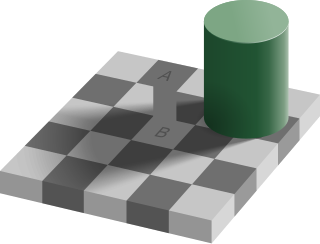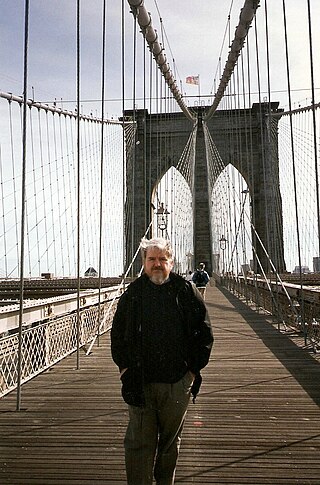External links
Wikiquote has quotations related to Evan Thompson .
| International | |
|---|---|
| National | |
| Academics | |
| Other | |
Evan Thompson | |
|---|---|
| Born | 1962 (age 60–61) |
| Alma mater | Amherst College (AB 1983), University of Toronto (PhD 1990) |
| Spouse | Rebecca Todd |
| Institutions | University of British Columbia |
Main interests | Asian Philosophy, Philosophy of mind, Cognitive Science |
| Website | https://evanthompson.me/ |
Evan Thompson (born 1962) is a professor of philosophy at the University of British Columbia. He writes about cognitive science, phenomenology, philosophy of mind, and cross-cultural philosophy, especially Buddhist philosophy in dialogue with Western philosophy of mind and cognitive science.
As a child, Thompson was home-schooled at the Lindisfarne Association, a think tank and retreat founded by his father, William Irwin Thompson. In 1977, Thompson met Chilean phenomenologist Francisco Varela when Varela attended a Lindisfarne conference which was organized by Thompson Senior and Gregory Bateson. Thompson received a Ph.D. in Philosophy from the University of Toronto in 1990 and an A.B. in Asian Studies from Amherst College in 1983.
Thompson has taught at the University of Toronto, Concordia University, Boston University, and York University. While at York University, Thompson was also a member of the Centre for Vision Research. Thompson has held visiting appointments at the Center for Subjectivity Research in Copenhagen, and at the University of Colorado, Boulder. Thompson worked with Francisco Varela at CREA (Centre de Recherche en Epistemologie Appliquée) at the Ecole Polytechnique in Paris. During this time, Varela and Thompson, along with Eleanor Rosch, wrote The Embodied Mind: Cognitive Science and Human Experience, which introduced the approach to cognitive science known as enactivism. [1] Thompson's book, Mind in Life: Biology, Phenomenology, and the Sciences of Mind, argues for a deep continuity between life and mind. [2] In 2020, Thompson published Why I Am Not A Buddhist, which argues against what he calls Buddhist exceptionalism, "the belief that Buddhism is superior to other religions...or that Buddhism isn't really a religion but rather is a kind of 'mind science,' therapy, philosophy, or a way of life based on meditation." [3]

Maurice Jean Jacques Merleau-Ponty was a French phenomenological philosopher, strongly influenced by Edmund Husserl and Martin Heidegger. The constitution of meaning in human experience was his main interest and he wrote on perception, art, politics, religion, biology, psychology, psychoanalysis, language, nature, and history. He was the lead editor of Les Temps modernes, the leftist magazine he established with Jean-Paul Sartre and Simone de Beauvoir in 1945.

The philosophy of perception is concerned with the nature of perceptual experience and the status of perceptual data, in particular how they relate to beliefs about, or knowledge of, the world. Any explicit account of perception requires a commitment to one of a variety of ontological or metaphysical views. Philosophers distinguish internalist accounts, which assume that perceptions of objects, and knowledge or beliefs about them, are aspects of an individual's mind, and externalist accounts, which state that they constitute real aspects of the world external to the individual. The position of naïve realism—the 'everyday' impression of physical objects constituting what is perceived—is to some extent contradicted by the occurrence of perceptual illusions and hallucinations and the relativity of perceptual experience as well as certain insights in science. Realist conceptions include phenomenalism and direct and indirect realism. Anti-realist conceptions include idealism and skepticism. Recent philosophical work have expanded on the philosophical features of perception by going beyond the single paradigm of vision.

Francisco Javier Varela García was a Chilean biologist, philosopher, cybernetician, and neuroscientist who, together with his mentor Humberto Maturana, is best known for introducing the concept of autopoiesis to biology, and for co-founding the Mind and Life Institute to promote dialog between science and Buddhism.

The term autopoiesis refers to a system capable of producing and maintaining itself by creating its own parts. The term was introduced in the 1972 publication Autopoiesis and Cognition: The Realization of the Living by Chilean biologists Humberto Maturana and Francisco Varela to define the self-maintaining chemistry of living cells.
Yogachara is an influential tradition of Buddhist philosophy and psychology emphasizing the study of cognition, perception, and consciousness through the interior lens of meditative and yogic practices. Yogachara was one of the two most influential traditions of Mahayana Buddhism in India, the other being Madhyamaka.
The relationship between Buddhism and science is a subject of contemporary discussion and debate among Buddhists, scientists, and scholars of Buddhism. Historically, Buddhism encompasses many types of beliefs, traditions and practices, so it is difficult to assert any single "Buddhism" in relation to science. Similarly, the issue of what "science" refers to remains a subject of debate, and there is no single view on this issue. Those who compare science with Buddhism may use "science" to refer to "a method of sober and rational investigation" or may refer to specific scientific theories, methods or technologies.
Rebirth in Buddhism refers to the teaching that the actions of a sentient being lead to a new existence after death, in an endless cycle called saṃsāra. This cycle is considered to be dukkha, unsatisfactory and painful. The cycle stops only if Nirvana (liberation) is achieved by insight and the extinguishing of craving. Rebirth is one of the foundational doctrines of Buddhism, along with karma and Nirvana. Rebirth was a key teaching of early Buddhism along with the doctrine of karma. In Early Buddhist Sources, the Buddha claims to have knowledge of his many past lives. Rebirth and other concepts of the afterlife have been interpreted in different ways by different Buddhist traditions.

Eleanor Rosch is an American psychologist. She is a professor of psychology at the University of California, Berkeley, specializing in cognitive psychology and primarily known for her work on categorization, in particular her prototype theory, which has profoundly influenced the field of cognitive psychology.
Neurophenomenology refers to a scientific research program aimed to address the hard problem of consciousness in a pragmatic way. It combines neuroscience with phenomenology in order to study experience, mind, and consciousness with an emphasis on the embodied condition of the human mind. The field is very much linked to fields such as neuropsychology, neuroanthropology and behavioral neuroscience and the study of phenomenology in psychology.

William Irwin Thompson was an American social philosopher, cultural critic, and poet. He received the Oslo International Poetry Festival Award in 1986. He described his writing and speaking style as "mind-jazz on ancient texts". He was the founder of the Lindisfarne Association, which proposed the study and realization of a new planetary culture.
Cartesian anxiety is a philosophical concept for the conflict that a subject experiences of failing to have—in reality—either a fixed and stable foundation for knowledge of what is and is not real, or an inescapable and incomprehensible groundlessness of reality. Richard J. Bernstein coined and used the term in his 1983 book Beyond Objectivism and Relativism: Science, Hermeneutics, and Praxis, referring to the feelings expressed by René Descartes, its namesake, in his Meditations on First Philosophy.
Enactivism is a position in cognitive science that argues that cognition arises through a dynamic interaction between an acting organism and its environment. It claims that the environment of an organism is brought about, or enacted, by the active exercise of that organism's sensorimotor processes. "The key point, then, is that the species brings forth and specifies its own domain of problems ...this domain does not exist "out there" in an environment that acts as a landing pad for organisms that somehow drop or parachute into the world. Instead, living beings and their environments stand in relation to each other through mutual specification or codetermination" (p. 198). "Organisms do not passively receive information from their environments, which they then translate into internal representations. Natural cognitive systems...participate in the generation of meaning ...engaging in transformational and not merely informational interactions: they enact a world." These authors suggest that the increasing emphasis upon enactive terminology presages a new era in thinking about cognitive science. How the actions involved in enactivism relate to age-old questions about free will remains a topic of active debate.
In neuroscience the bridge locus for a particular sensory percept is a hypothetical set of neurons whose activity is the basis of that sensory percept. The term was introduced by D.N. Teller and E.Y. Pugh Jr. in 1983, and has been sparingly used. Activity in the bridge locus neurons is postulated to be necessary and sufficient for sensory perception: if the bridge locus neurons are not active, then the sensory perception does not occur, regardless of the actual sensory input. Conversely if the bridge locus neurons are active, then sensory perception occurs, regardless of the actual sensory input. It is the highest neural level of a sensory perception. So, for example, retinal neurons are not considered a bridge locus for visual perception because stimulating visual cortex can give rise to visual percepts.

Buddhism includes an analysis of human psychology, emotion, cognition, behavior and motivation along with therapeutic practices. Buddhist psychology is embedded within the greater Buddhist ethical and philosophical system, and its psychological terminology is colored by ethical overtones. Buddhist psychology has two therapeutic goals: the healthy and virtuous life of a householder and the ultimate goal of nirvana, the total cessation of dissatisfaction and suffering (dukkha).

Bruce Alan Wallace is an American author and expert on Tibetan Buddhism. His books discuss Eastern and Western scientific, philosophical, and contemplative modes of inquiry, often focusing on the relationships between science and Buddhism. He is founder of the Santa Barbara Institute for Consciousness Studies.

The Mind & Life Institute is a US-registered, not-for-profit 501(c)(3) organization founded in 1991 to establish the field of contemplative sciences. Based in Charlottesville, Va., the institute “brings science and contemplative wisdom together to better understand the mind and create positive change in the world." Over three decades, Mind & Life has played a key role in the mindfulness meditation movement by funding research projects and think tanks, and by convening conferences and dialogues with the Dalai Lama. Since 2020, Mind & Life's grant-making, events, and digital programs have sought to nurture personal wellbeing, build more compassionate communities, and strengthen the human-earth connection.
Ezequiel A Di Paolo is a full-time Research Professor at Ikerbasque, the Basque Foundation for Science. He also has affiliations with the Centre for Computational Neuroscience and Robotics at the University of Sussex. His field of research covers enactivism and embodiment in cognitive science.

Waking Up: A Guide to Spirituality Without Religion is a 2014 book by Sam Harris that discusses a wide range of topics including secular spirituality, the illusion of the self, psychedelics, and meditation. He attempts to show that a certain form of spirituality is integral to understanding the nature of the mind. In late September 2014, the book reached #5 on The New York Times Non-Fiction Best Sellers list.

R. Adam Engle is an American social entrepreneur who initiated and developed the Mind and Life Dialogues between the 14th Dalai Lama of Tibet and panels of prominent scientists in the 1980s. Over the 22 years of his subsequent tenure as chief executive of the Mind and Life Institute, which he co-founded in 1990, his work contributed significantly to the establishment of contemplative science as a new field of research.

Why Buddhism is True: The Science and Philosophy of Meditation and Enlightenment is a 2017 book by Robert Wright. As of August 2017, the book had peaked at The New York Times No. 4 bestseller in hardcover nonfiction.